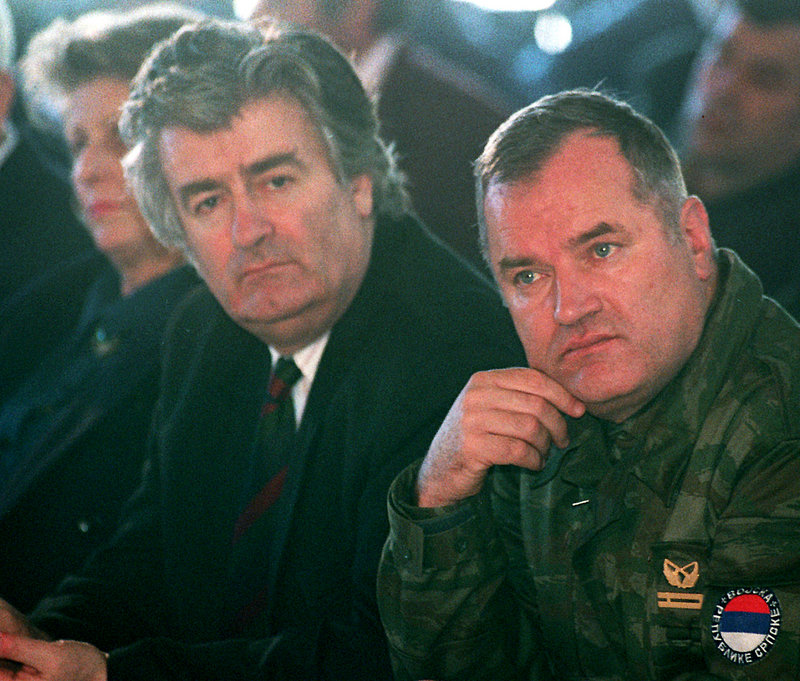BELGRADE, Serbia – Sixteen years after he went on the run, a pale and shrunken Ratko Mladic was hauled into a courtroom Thursday to face charges of genocide in ordering torture, rape and the slaughter of 8,000 Muslim men and boys in the Bosnian town of Srebrenica in 1995.
A Serbian government that has changed mightily since Mladic’s alleged atrocities trumpeted his early morning arrest as a victory for a country worthy of European Union membership and Western embrace. It banned all public gatherings and raised security levels to prevent ultranationalists from making good on pledges to pour into the streets in protest. Riot police broke up one small protest.
Mladic was one of the world’s most wanted men. He faces charges of genocide and war crimes at the United Nations war crimes tribunal in The Hague, Netherlands, where judge Fouad Riad said there was evidence of “unimaginable savagery.”
“Thousands of men executed and buried in mass graves, hundreds of men buried alive, men and women mutilated and slaughtered, children killed before their mothers’ eyes, a grandfather forced to eat the liver of his own grandson,” Riad said during Mladic’s 1995 indictment in absentia.
Mladic, 69, appeared frail and walked very slowly Thursday evening as he went into a closed-door extradition hearing. He carried what appeared to be a towel in his left hand. He could be heard on state TV saying “good day” to someone in the court, and a guard told him, “Let’s go, general.”
Mladic’s lawyer said the judge cut short the questioning because the suspect’s “poor physical state” left him unable to communicate.
“He is aware that he is under arrest, he knows where he is, and he said he does not recognize The Hague tribunal,” said attorney Milos Saljic, adding that Mladic needs medical care and “should not be moved in such a state.” Belgrade B-92 radio said one of Mladic’s arms was paralyzed — probably the result of a stroke.
Deputy war crimes prosecutor Bruno Vekaric said that Mladic is taking a lot of medicine, but “responds very rationally to everything that is going on.”
Extradition proceedings could take a week or more before Mladic’s expected transfer to The Hague, where he faces life imprisonment. The U.N. court has no death penalty.
Only one of 161 people sought by the tribunal remains at large: Goran Hadzic, a former leader of Serbs in Croatia. International law experts hope the arrest will send a message to figures like Libya’s Moammar Gadhafi that no leader charged with a war crime can expect to escape justice forever.
“Impunity has really been withdrawn from war criminals,” said Richard Goldstone, the prosecutor in the 1995 indictment. “It’s a very different world, and the prospects of them standing trial one day have been heightened considerably.”
The arrest also releases Serbia from widespread suspicion that it was protecting Mladic. U.N. war crimes prosecutor Serge Brammertz was due early next month to give the United Nations a report critical of Serbia’s lack of cooperation with the hunt for Mladic and other fugitives.
Send questions/comments to the editors.



Success. Please wait for the page to reload. If the page does not reload within 5 seconds, please refresh the page.
Enter your email and password to access comments.
Hi, to comment on stories you must . This profile is in addition to your subscription and website login.
Already have a commenting profile? .
Invalid username/password.
Please check your email to confirm and complete your registration.
Only subscribers are eligible to post comments. Please subscribe or login first for digital access. Here’s why.
Use the form below to reset your password. When you've submitted your account email, we will send an email with a reset code.